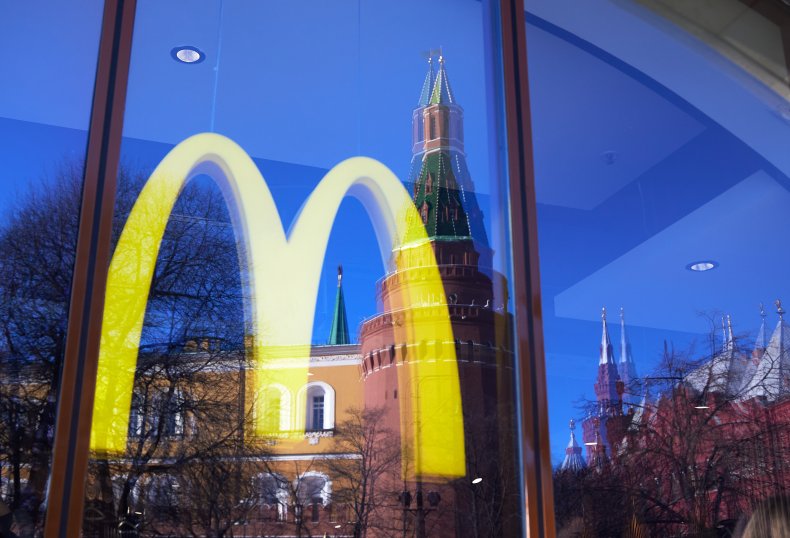After all, the Russians can get their hands on a Big Mac, despite the fact that McDonald’s is officially closing all outlets across the country.
McDonald’s Corp. announced on Tuesday that it will be the next international company to cut ties with Russia amid the ongoing invasion of Ukraine. All 847 McDonald’s locations in the country are temporarily closed, although Russian officials are considering circumventing trademark restrictions to reopen.
The fast food chain was one of the first Western franchises to open in Russia after the collapse of the Soviet Union and soon became an icon of post-Soviet life. His departure from the country was a serious blow to the Russian economy, which is already facing tough sanctions.

While the McDonald’s Corporation has closed all of its offices in Russia, Russian officials are reportedly considering lifting restrictions on trademark and patent laws domestically. Theoretically, this will allow independent operators to reopen McDonald’s restaurants in Russia, despite the corporation’s wishes. Here you can see the logo of McDonald’s in Moscow against the backdrop of the Kremlin towers. Oleg Nikishin/Getty
A recent report by TASS, Russia’s largest and best-known state news agency, says the country’s Ministry of Economic Development is considering lifting restrictions on the use of trademarks and proprietary brands among companies that have blacklisted Russia.
“The measure will allow, on the one hand, to organize the production and use of technologies that were presented in products devoid of [by] Western companies [to] our citizens,” reads an excerpt translated from Russian.
“This will mitigate the impact on the market of disruptions in supply chains, as well as shortages of goods and services that have arisen due to new sanctions from Western countries,” the report says.
News about the report was first published by The Washington Post on Wednesday, where it was noted that Russia’s actions could potentially amount to the legalization of patent theft. If these trademark restrictions are lifted, it would theoretically allow Russia to operate McDonald’s restaurants independently, regardless of the wishes of the McDonald’s Corporation.
Since the country doesn’t have trademarks to protect American brands, Russia could “take those McDonald’s that were closed and … just let local operators run restaurants and call them McDonald’s,” intellectual property lawyer Josh Gerben told the Post.
“This is just another example of how [Russian President Vladimir Putin] forever changed Russia’s relations with the world,” Gerben said.
McDonald’s Corporation does not comment on the possibility of Russia lifting restrictions on trademarks. In a press release on the Russian production shutdown, CEO Chris Kempchinski said: “The conflict in Ukraine and the humanitarian crisis in Europe have caused untold suffering to innocent people.”
“For more than thirty years of McDonald’s operation in Russia, we have become an integral part of the 850 communities in which we operate,” the message says. “At the same time, our values mean that we cannot ignore the unnecessary human suffering going on in Ukraine… McDonald’s has taken the decision to temporarily close all of our restaurants in Russia and suspend all market operations.”
In addition to closing its Russian branches, McDonald’s has also announced that it will work to support humanitarian efforts across Ukraine. This includes financial assistance to their Ukrainian employees and the use of their Ronald McDonald House charities to provide medical care and other assistance, the company said.
While McDonald’s stores remain closed across Russia for the time being, local officials may soon try to reopen them if the TASS report is true.
Newsweek has reached out to McDonald’s Corporation for comment.
